A grim read
I first read A Canticle for Leibowitz some years ago. At the time what shocked me more than anything was the unexpected, and violent, death of the most sympathetic character in the book. I can remember physically being jolted upright by the shock of it.
On re-reading, this is obviously not a surprise, and what struck me this time round was the sheer bleakness of Walter M. Miller Jr's dystopian vision. Leibowitz had its roots in 3 novellas portraying humanity's resurrection from the ashes of a nuclear holocaust. In the first section of the novel humanity is still in an early stage of recovery: a monastic order in a desert area of Nevada/Denver/Utah has preserved some of the few written documents left to man after the holocaust. The second section moves on several centuries to a Renaissance type period where major scientific innovations, such as electricity, are being re-discovered; but already the seeds of war have been sewn and humanity seems to be set back on the path which will lead to its destruction. In the final section, in a society which is in advance of our own, a second nuclear holocaust becomes inevitable.
Miller's cyclical view of history is profoundly bleak. There is redemption, but this is inevitably followed, or preceded by, destruction. Ironically in a book which is full of characters' attempts to preserve knowledge, the lesson of the novel is that ultimately humans never learn.
Miller flew many combat missions over Italy during the Second World War, and was profoundly influenced by the destruction of the monastery at Monte Cassino. The parallels between that battle and the story of the Leibowitzian monastery are clear to see. Miller converted to Catholicism following the war, and its influence on this work is immense. Interestingly I thought that this does place the work very much as a creation of its time. I cannot imagine a similar work being written now giving religion such high status in a post-holocaust future.
Leibowitz makes grim reading, although there is humour, sometimes even the odd laugh-out-loud moment, this becomes less and less as the work progresses. Such a dystopian view however does have its good points - it makes the world around you feel considerably better than it did before reading A canticle for Leibowitz, and it continues to be one of the benchmarks for great science fiction writing.
On re-reading, this is obviously not a surprise, and what struck me this time round was the sheer bleakness of Walter M. Miller Jr's dystopian vision. Leibowitz had its roots in 3 novellas portraying humanity's resurrection from the ashes of a nuclear holocaust. In the first section of the novel humanity is still in an early stage of recovery: a monastic order in a desert area of Nevada/Denver/Utah has preserved some of the few written documents left to man after the holocaust. The second section moves on several centuries to a Renaissance type period where major scientific innovations, such as electricity, are being re-discovered; but already the seeds of war have been sewn and humanity seems to be set back on the path which will lead to its destruction. In the final section, in a society which is in advance of our own, a second nuclear holocaust becomes inevitable.
Miller's cyclical view of history is profoundly bleak. There is redemption, but this is inevitably followed, or preceded by, destruction. Ironically in a book which is full of characters' attempts to preserve knowledge, the lesson of the novel is that ultimately humans never learn.
Miller flew many combat missions over Italy during the Second World War, and was profoundly influenced by the destruction of the monastery at Monte Cassino. The parallels between that battle and the story of the Leibowitzian monastery are clear to see. Miller converted to Catholicism following the war, and its influence on this work is immense. Interestingly I thought that this does place the work very much as a creation of its time. I cannot imagine a similar work being written now giving religion such high status in a post-holocaust future.
Leibowitz makes grim reading, although there is humour, sometimes even the odd laugh-out-loud moment, this becomes less and less as the work progresses. Such a dystopian view however does have its good points - it makes the world around you feel considerably better than it did before reading A canticle for Leibowitz, and it continues to be one of the benchmarks for great science fiction writing.
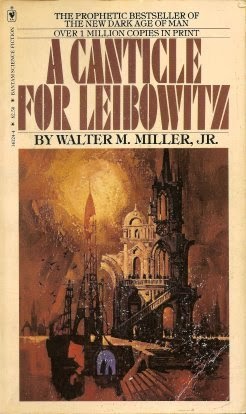
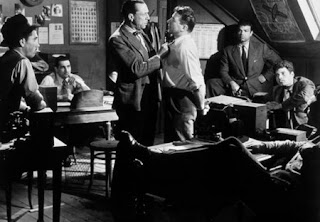

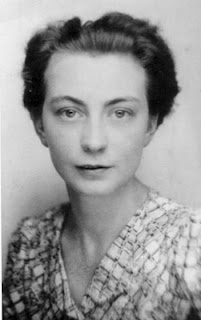
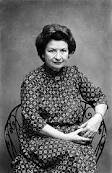
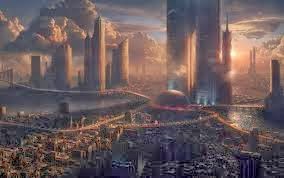
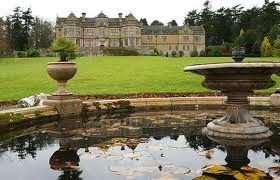
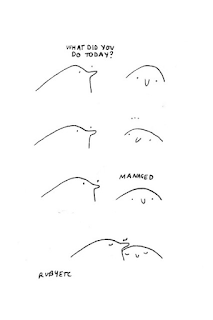


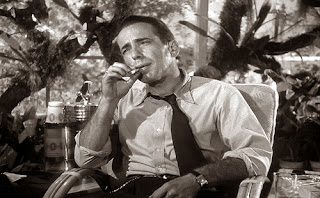
Comments